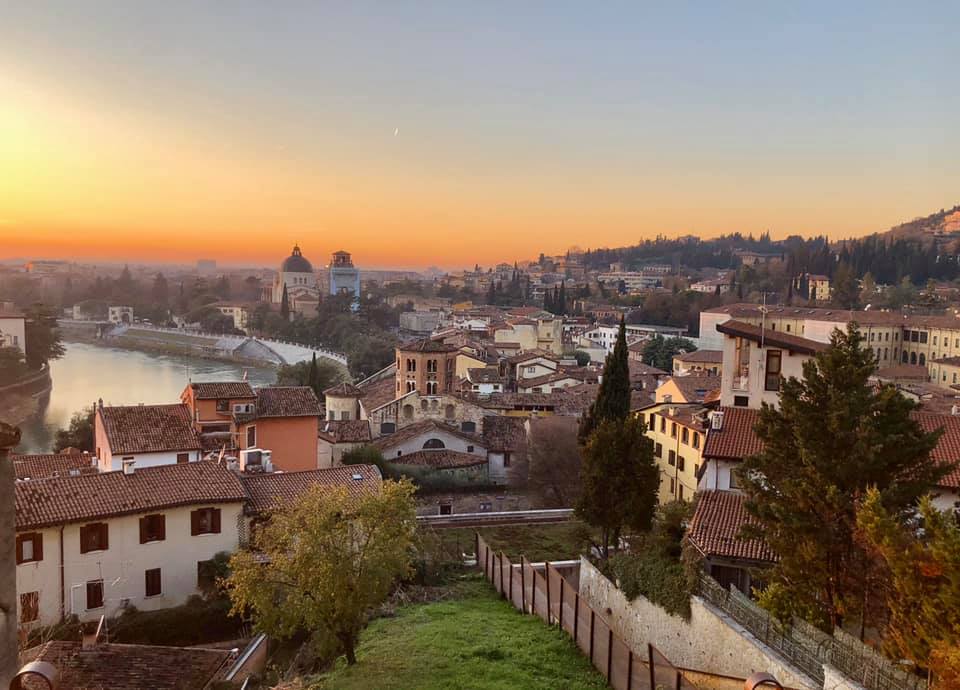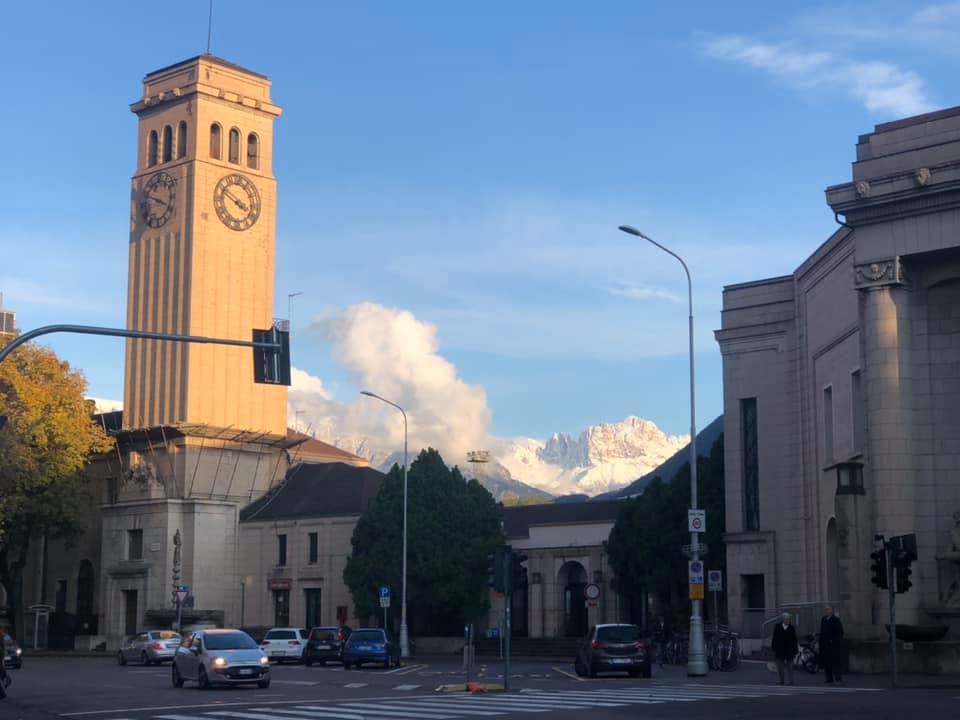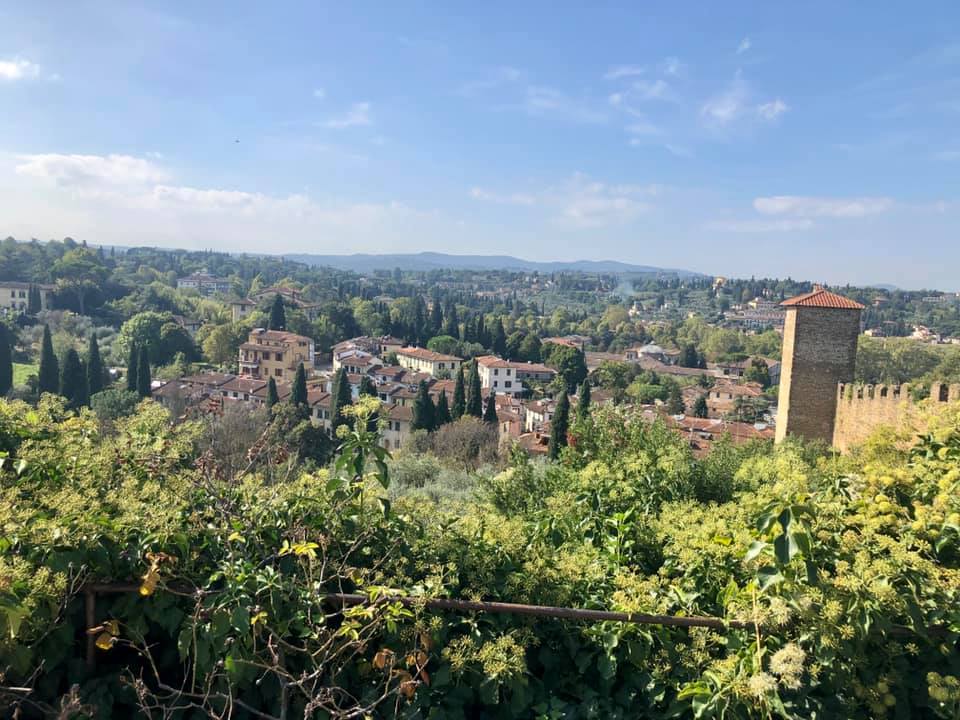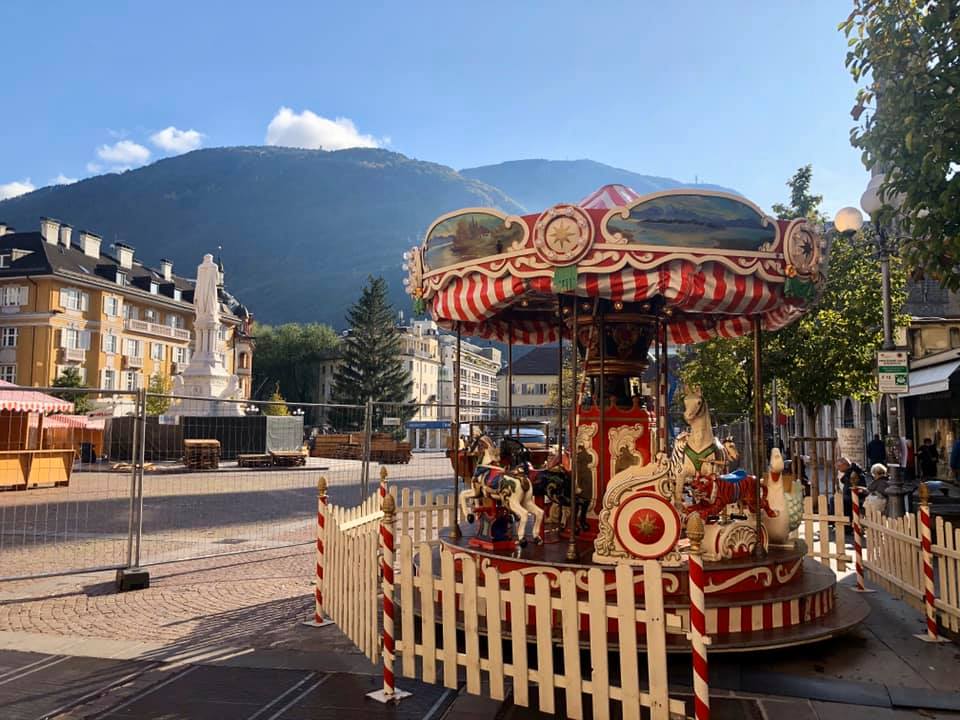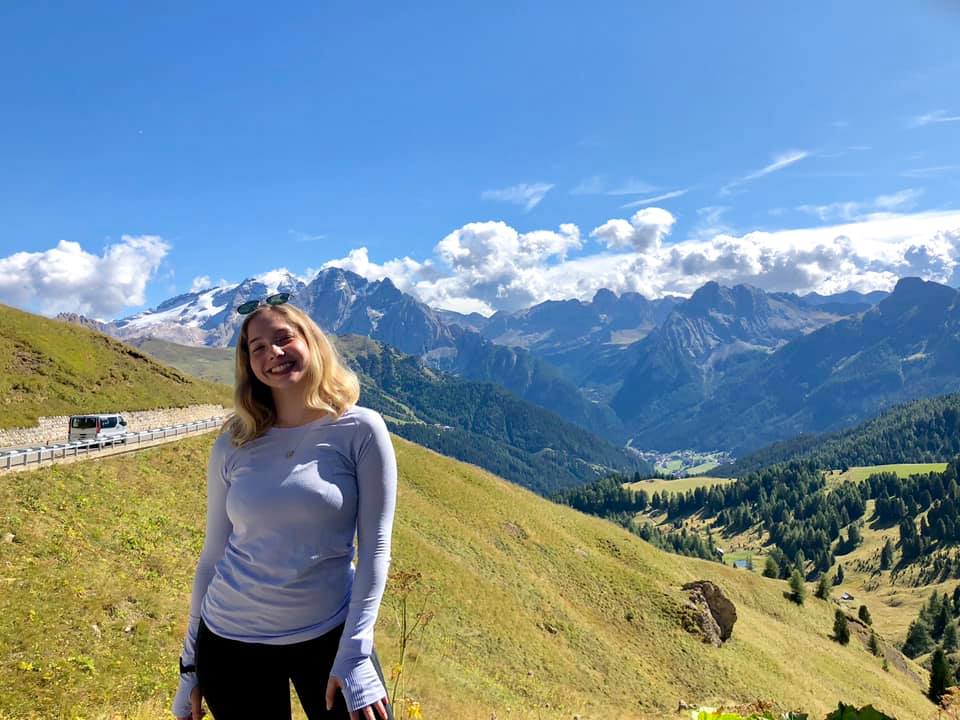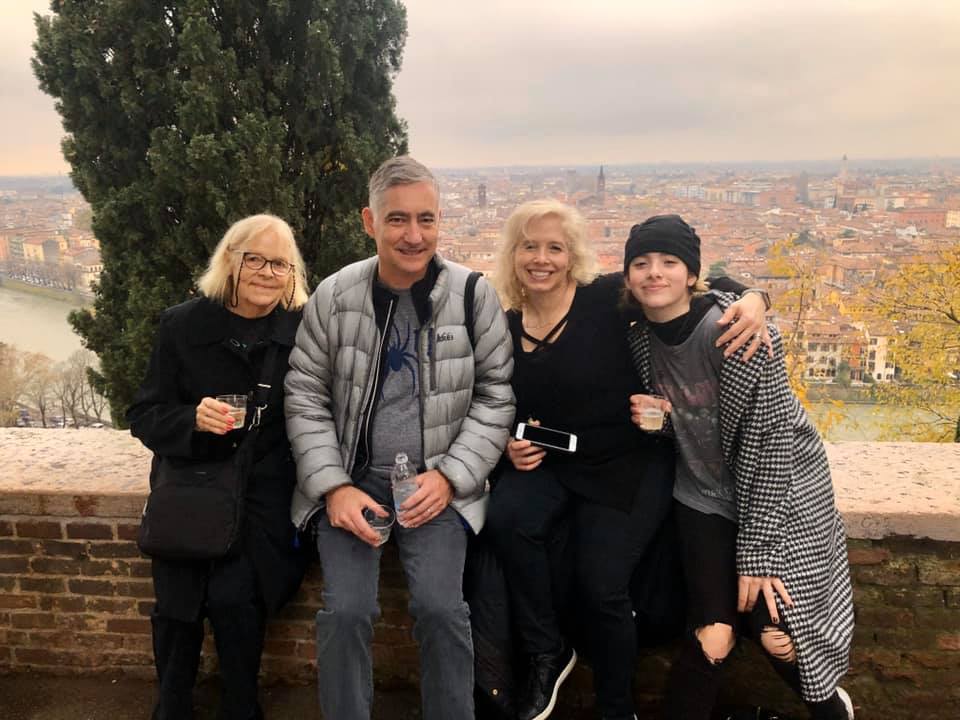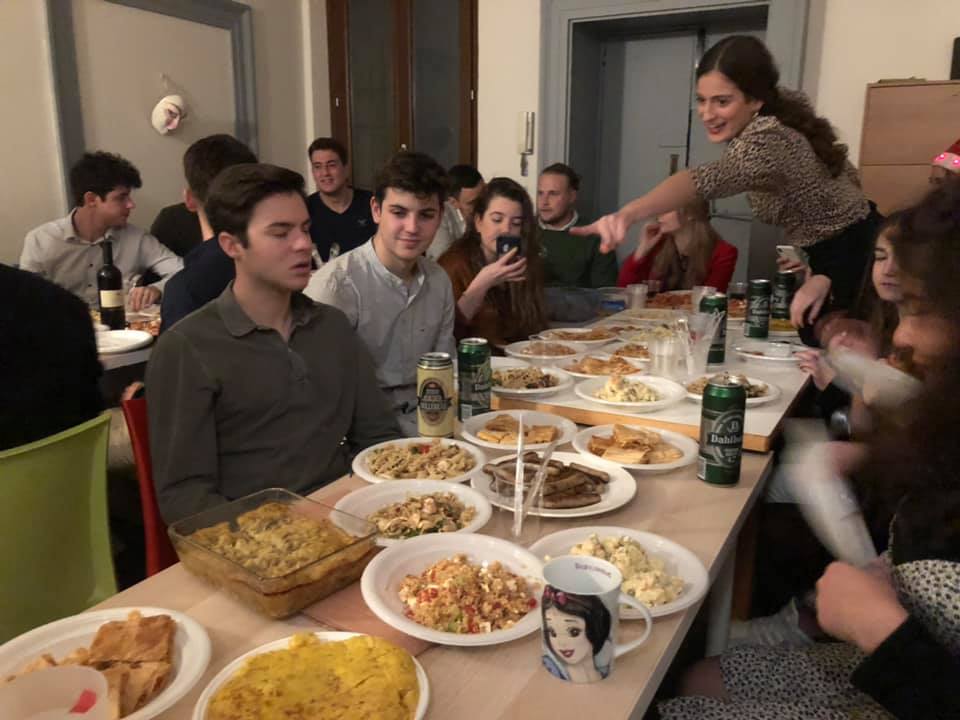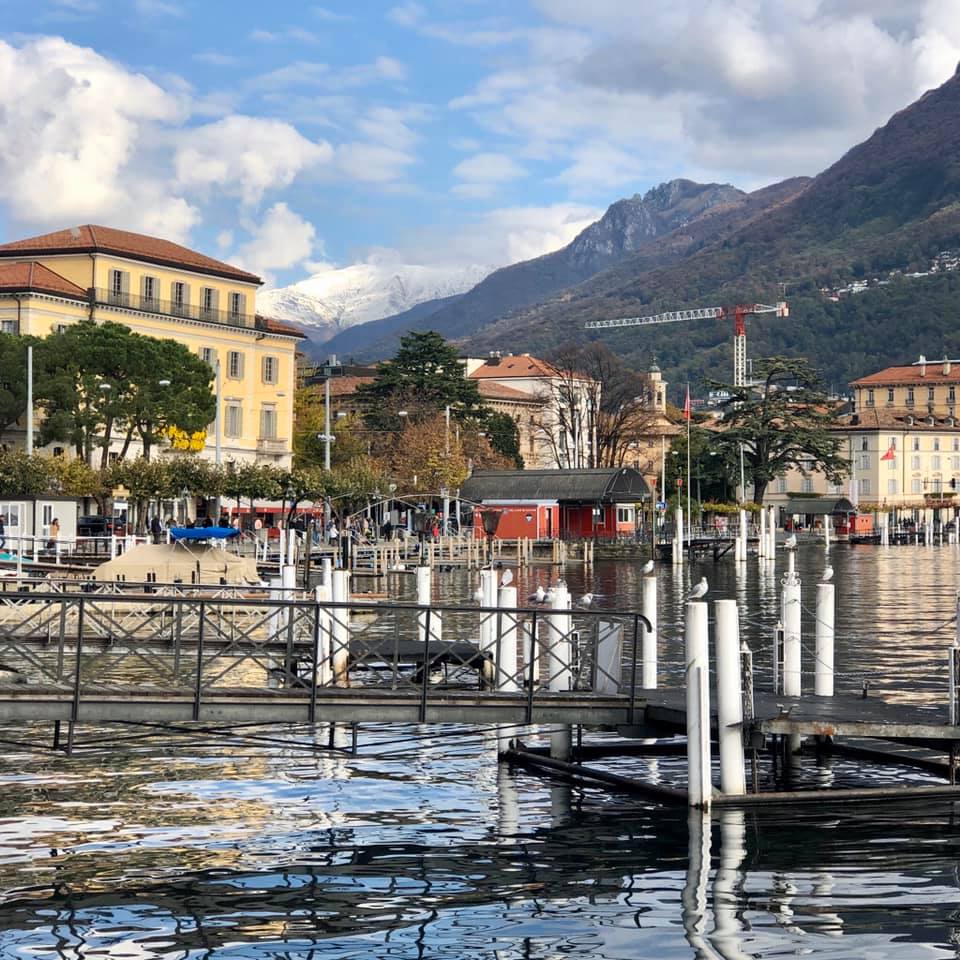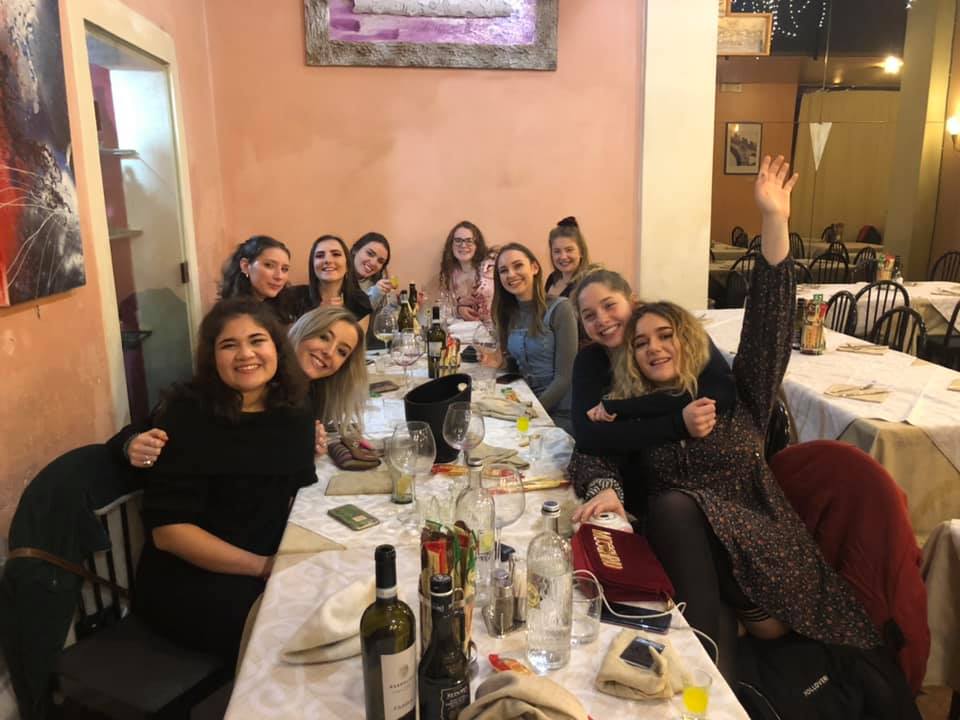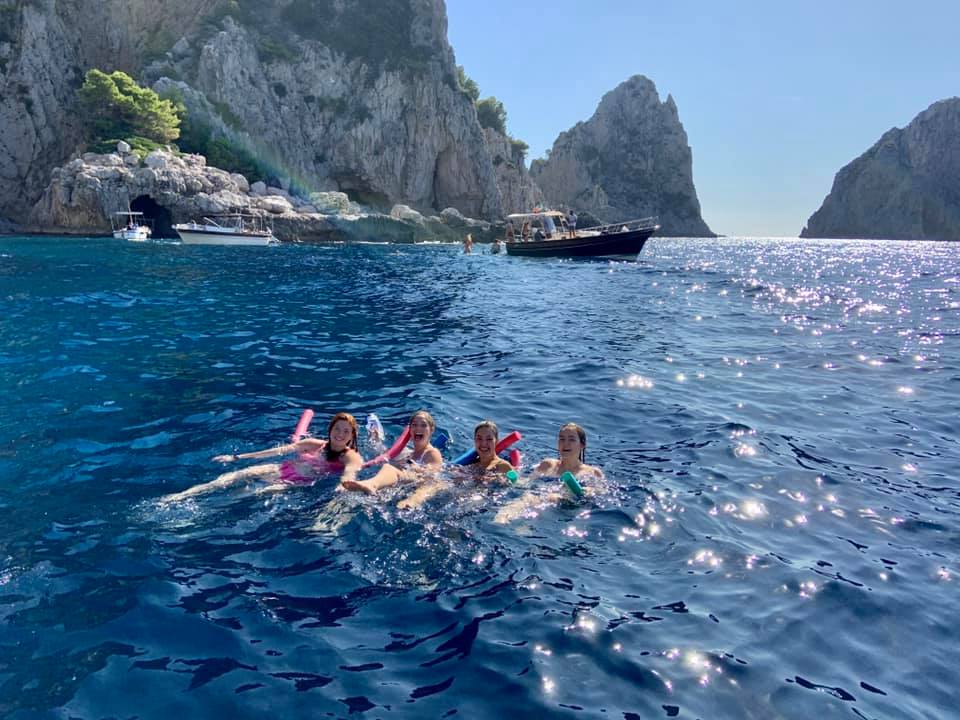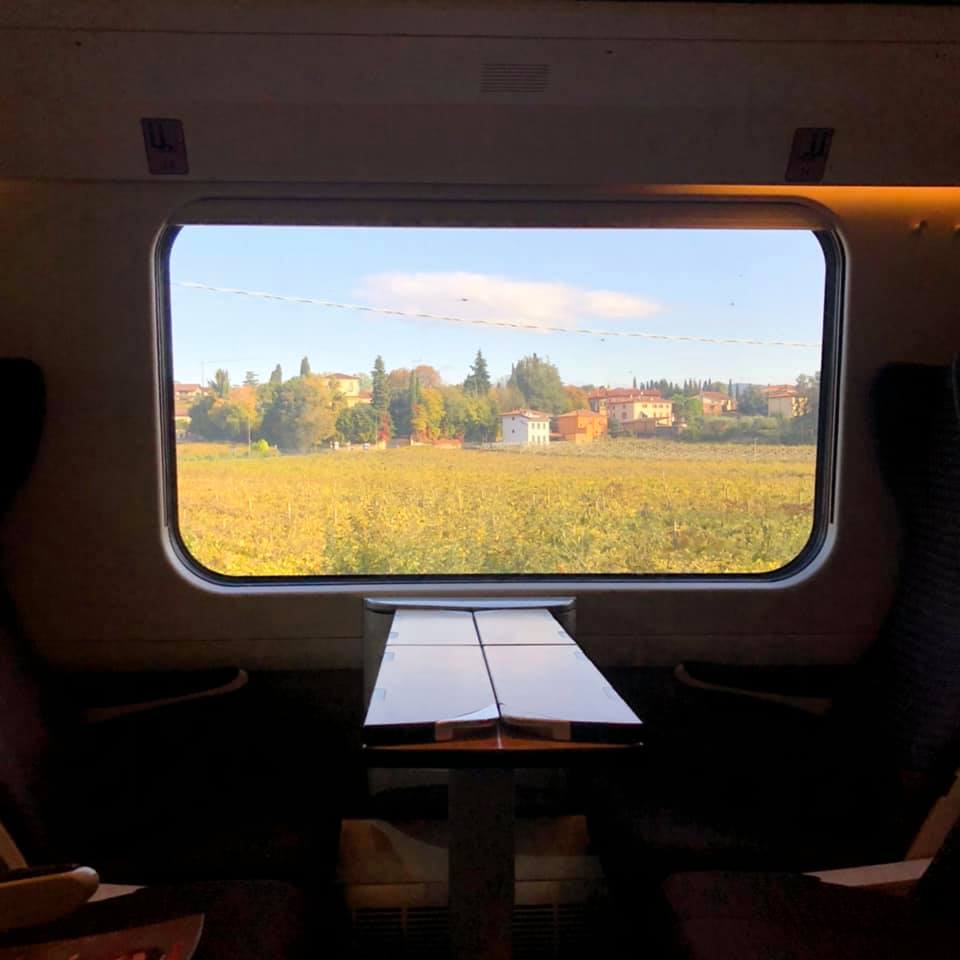Italian Studies
My Journey
I began studying Italian in the fall of 2015. Before starting Italian I studied Spanish for 4 years, which sparked my love of language learning and served as a nice foundation. Upon graduating high school in the spring of 2017, my competence was at the elementary level at best. When I arrived at UR, I had no interest in continuing with foreign language; I hoped to score out of the requirement. I was only a few points away from doing so, and my proctor suggested I speak with the head of the Italian deparment to see if I could get the requirement waived but eventually decided against it. That was one of the best decisions I made in college.
Research & TranslationsL'università degli studi di Verona
It introduced me to my professor and mentor Gabriella Valsecchi, who would later offer me the opportunity to teach her language drills for three years. It showed me a community of learners who shared a common passion of Italian language and culture. And it led me to living in Verona, Italy, as a student at l'Università degli studi di Verona. As a senior, I spent the year writing an honors thesis for the Italian department. I explored the effect of funding on univerisites while also drawing a more general comparison between Italian and American institutions. At the end of the year I received the Outstanding Senior Award from the Languages, Literatures, and Cultures Department. Upon graduating, I began working as a tutor for high school Italian students and a Translator & Interpreter at Tarjimly. I also love to stay connected to my studies by following Italian news (Mario Calabresi is my favorite journalist), shows, and music. Feel free to checkout my Spotfiy playlist here!
My Work
- Full-Year Honors Thesis: “Due Sistemi Universitari a confronto: L’Università degli Studi di Verona e la University of Richmond”
In his famous novel The Name of the Rose, Umberto Eco tells the story of a Benedictine monastery in northern Italy where mysterious murders take place. The protagonist principal William of Baskerville, a Franciscan friar, goes for a theological dispute towards the monastery traveling under the protection of Adso of Melk, a Benedictine novice. When they arrive at the monastery, Guglielmo is asked by the abbot of the monastery, Abo di Fossanova, to investigate the recent death of the illuminator Adelmo d'Otranto. After having also investigated the other murders that occurred at the monastery, William realizes a trait in common between the dead people: they had read a mysterious manuscript. At the end of the book it turns out they were been poisoned by the pages of the missing manuscript, and in conclusion, Eco's book points out the main theme is that having too much information is dangerous. The monks, the people who had access to the manuscripts, noticed the effects of the information on others. They understood that knowledge is important therefore they continued to protect and preserve knowledge, thinking that access to knowledge must be regulated. Passion for knowledge is a human instinct, but the question raised by Eco's book concerns the danger of a villain knowledge management precisely because of the human limitations to which we are all subjected. I took inspiration from Eco and focused my research on the educational instiutions standing today, specifically drawing experience from the University of Richmond and University of Verona.
Carole Weinstein International Center, Richmond, Virginia
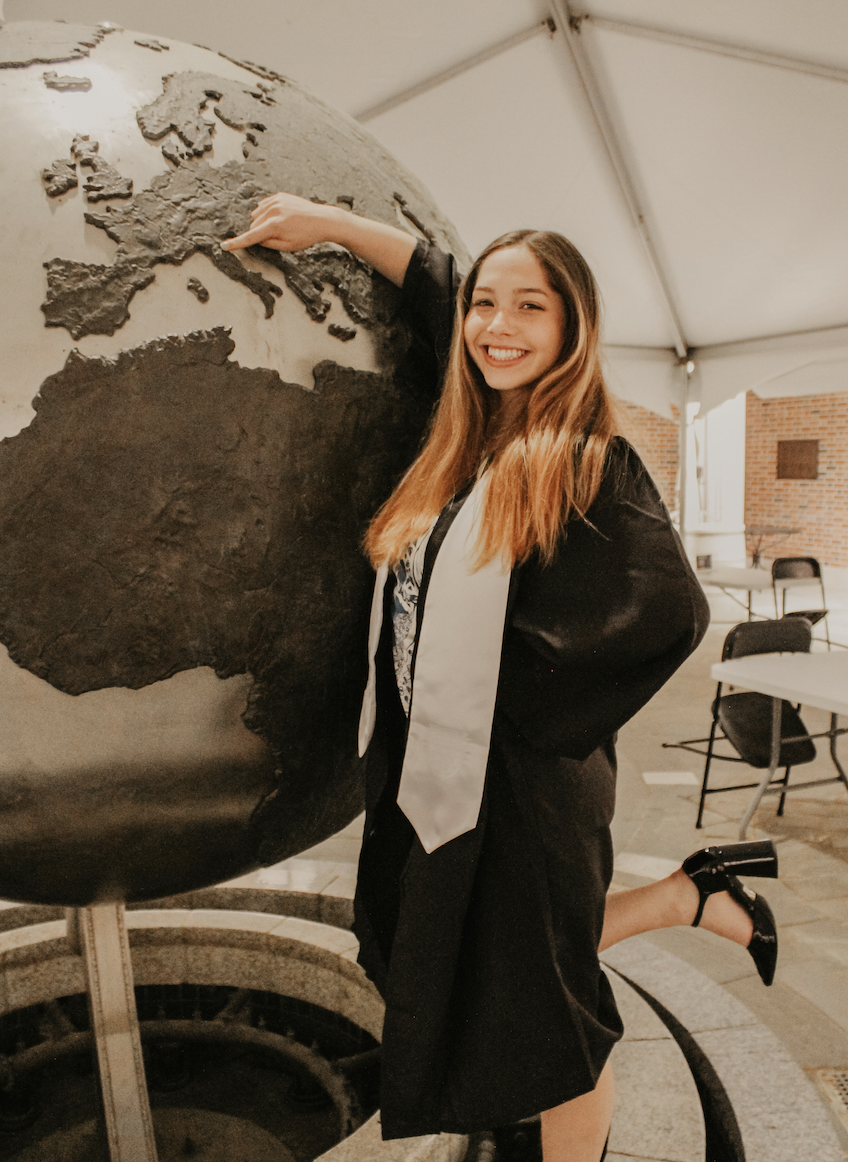
- Rosso Come Una Sposa by Anilda Ibrahimi
- La Regina delle Tenebre by Grazie Deledda
You can find a summary of my thesis here or a full version of it through UR's library here. If you cannot access UR's server, I have also linked it to the title above.
During the fall of 2018, I took the Italian Literature in Context (321) course taught by Dr. Lidia Radi. The class offered an introduction to Italian literature through analysis of selected works in their historical, aesthetic, sociopolitical, and other cultural contexts. Specifically, we read Anilda Ibrahimi's Rosso Come Una Sposa and worked as a class to translate the piece.
As a part of my departmental honors thesis, I completed two upper level Italian courses for honors credit. In Spring 2020, I took Anthony Russell's course ITAL 497: The Italian Short Story, where we read and analyzed variety of fables and short stories. After reading “La Regina delle Tenebre” by Deledda, I chose to translate that for my honors credit.
My Journey
In the fall of 2019 I went to Verona, Italy, for my semester abroad as a direct enrollment student at the Università degli Studi di Verona. I completed coursework at the masters level, studying Italian language and literature, linguistics, and philology. My favorite course, romance philology, happened to be the only course I was taking with all Italian peers. In fact, I was the only American and only student whose first language was not Italian in the room. Though that was an obstacle, my professor was incredibly accommodating, and my peers were more than happy to give me their notes and explain concepts I was struggling with. This was such a unique experience, and I believe this kind of support and mindset is crucial to students' success. Sadly in America, we often see a more 'invidual' mindset and a culture that promotes competition rather than team learning. At the end of my semester I passed the QCER B2 Italian Proficiency test, proving my competency to be at the advanced intermediate level. Though the academic aspect of this semester was incredibly rewarding, the most powerful part of this experience was connecting with people from different cultures and backgrounds. I was the only American studying at Verona that semester, and I am so grateful to have met friends from all over the globe: Ireland, Scotland, England, Spain, Germany, France, Poland, the Czech Republic and more. Interacting with people outside of my American world challenged me to form deeper connections and learn to prioritize one's character and values aside all else.
16
